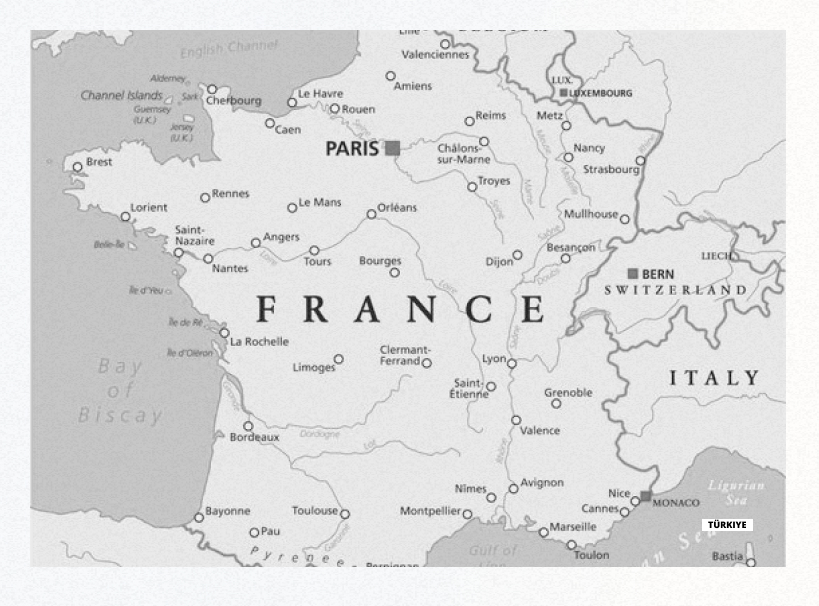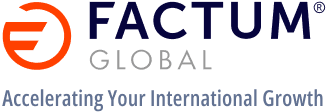
Market Spotlight:
France

Factum Scale:
-
According to the World Bank’s Ease of Doing Business Index, France is ranked 32 out of 190 countries.
-
Non-EU members typically have a more challenging experience in doing business in France. All should be prepared to manage the complexities of the country’s extensive labor laws and bureaucracy.
-
France tends to interpret existing EU regulations more rigorously than other member states, making it more difficult for international firms to navigate entering the market (ITA).
-
However, the French government has made significant business-friendly reforms, the corporate tax (IS) has been significantly reduced, Company Value Added Tax (CVAE) tax rates have been set to be removed by 2027, and production taxes have been cut (S Department of State).
-
For entrepreneurs, the French government implemented an online platform called “guichet-entreprises.fr“, a one-stop, online solution to complete most of the new business registration process. This has greatly simplified and expedited the process of starting a business.
Tariffs & Regulations
Factum Scale:
-
France’s regulations and bureaucratic procedures may be a difficult hurdle for companies seeking to enter the French market.
-
The existence of complex safety standards often complicate access to the French market for many U.S. products. It is highly recommended that ample research is completed to understand standards and proper protocol (ITA) and consider partnering with a local advisor to manage potential financial and other risks.
-
France is part of the European Union’s Common Customs Tariff (CCT), which applies to all EU members. Import duties vary but the general tariff averages at 4.2%.
-
Preferential rates apply to imports from countries with EU agreements, including Indonesia, India, Chile, South Korea, Singapore, and New Zealand (International Trade Association).
Fluency in English
Factum Scale:
-
According to the EF English Proficiency Index, France has a “moderate proficiency,” ranking it 43 of 113 countries globally and 30 of 34 in all of Europe.
-
About 39% of France speaks English proficiently. This percentage tends to vary by region, with English as less popular in rural areas. “High” English proficiency is found in more city/tourist locations such as Île-de-France, Pays-de-la-Loire, and Auvergne-Rhône-Alpes.
-
When conducting business outside the major cities, one might consider hiring an interpreter to accompany you in your meetings.
Society, Culture, and Business Etiquette
Factum Scale:
-
French business culture is quite conservative and professional. The French strongly value formalities, politeness, adhering to the rules, and structure.
-
When meeting someone for the first time, one should introduce themselves with their title and first and last name. A common greeting is bonjour with a quick handshake and addressing your host with monsieur (sir) or madame (miss).
-
The French value punctuality, so plan to arrive a few minutes before your meeting. Also, set your appointments and meetings at least two weeks in advance and confirm the day before.
-
It’s common to exchange business cards in France. While not necessary, you might consider translating your business cards into French on one side as a sign of courtesy. Take a moment to read the card before placing it on the table to demonstrate respect for your counterpart.
-
French business attire is formal and conservative, with men typically wearing well-tailored dark suits and women opting for neutral suits or dresses. Attention to detail and high-quality materials are important, reflecting professionalism and a sophisticated appearance.
Economic Stability
Factum Scale:
-
France’s economic freedom score is higher than the world average, ranked 62 out of 184 countries. France’s economy is considered “moderately free” according to the 2024 economic freedom Index.
-
The French economy remains stable, diversified, and relatively resilient with such institutional strengths as strong protection of property rights and a fairly efficient regulatory framework facilitating entrepreneurial activity.
-
France’s economy under former president Macron has become increasingly liberalized which has coincided with an acceleration in investment and the unemployment rate falling to an over-decade low in recent years.
Labor
Factum Scale:
-
Despite having one of the highest labor costs in the world for employees, France is listed in the top 10 nations in terms of hourly productivity.
-
In 2022, the labor participation rate among the total population aged between 15 and 64 in France was approximately 31%, an increase since 2012.
-
According to the National Institute of Statistics and Economic Studies (INSEE), the average salary of a private sector employee in France in 2022 was 2,630 euros (2,850.42 USD) net per month, but this significantly varies by industry sector and region.
-
Labor regulations are rigid, and the labor market lacks the capacity to generate more vibrant employment growth.
-
Key GDP growth sectors include manufacturing, aerospace, luxury goods, services (tourism, finance), and agriculture (mainly wine and dairy products).
Business Structures
-
SARL (Société à Responsabilité Limitée): A limited liability company suitable for small to medium businesses with up to 100 shareholders. It offers liability protection and is managed by one or more gérants.
-
SAS (Société par Actions Simplifiée): A flexible structure with simplified formalities, popular among startups and international companies. It allows for customized governance and can be formed by one or multiple shareholders.
-
SASU (Société par actions simplifiée unipersonnelle): SASU is suitable for companies initiated by a single person. It is the most popular company type among individual entrepreneurs. Transitioning from SASU to SAS (Multi-Person Simplified Joint-Stock Company) is convenient.
-
SA (Société Anonyme): A public limited company structure used by larger businesses and listed companies. It requires at least seven shareholders and has a more complex management structure.
-
EURL (Entreprise Unipersonnelle à Responsabilité Limitée): A single-member limited liability company, essentially a one-person version of SARL. It provides liability protection and separation of personal and business assets for individual entrepreneurs.
-
Micro-entreprise: A simplified regime for sole proprietors with small-scale activities and low turnover. It offers simplified accounting and tax obligations but doesn’t provide liability protection.
Business Landscape
-
France ranked first in Europe for the fifth consecutive year for their ability to attract Foreign Direct Investment (FDI) projects. It offers various incentives for foreign businesses and are constantly seeking out foreign investment.
-
SMEs are the backbone of France’s economy and represent 99.8% of all companies, 42% of the country’s GDP, and 52% of total private sector employment (Amazon News).
-
Emerging opportunities include AI, health sciences, and tech startups. The French Tech Mission describes itself as “a public administration that implements support programs for French start-ups and leads a network of structures to boost the French tech ecosystem in all territories”.
Notable Institutions
-
Ministry of Economy and Finance (Ministère de l’Économie et des Finances): Oversees economic policies, taxation, and business regulations in France. Provides information on business environment and financial incentives for foreign investors.
-
Direction Générale des Finances Publiques (DGFiP): Responsible for administering and collecting taxes. It oversees the assessment and collection of various taxes such as the income tax, corporate tax, value-added tax (VAT), and local taxes, while also providing information and assistance to taxpayers and enforcing tax laws to ensure compliance.
-
Business France: Promotes international investment and helps foreign companies establish operations in France.
-
Centre de Formalités des Entreprises (CFE): TiOne-stop shop for business registration in France.


